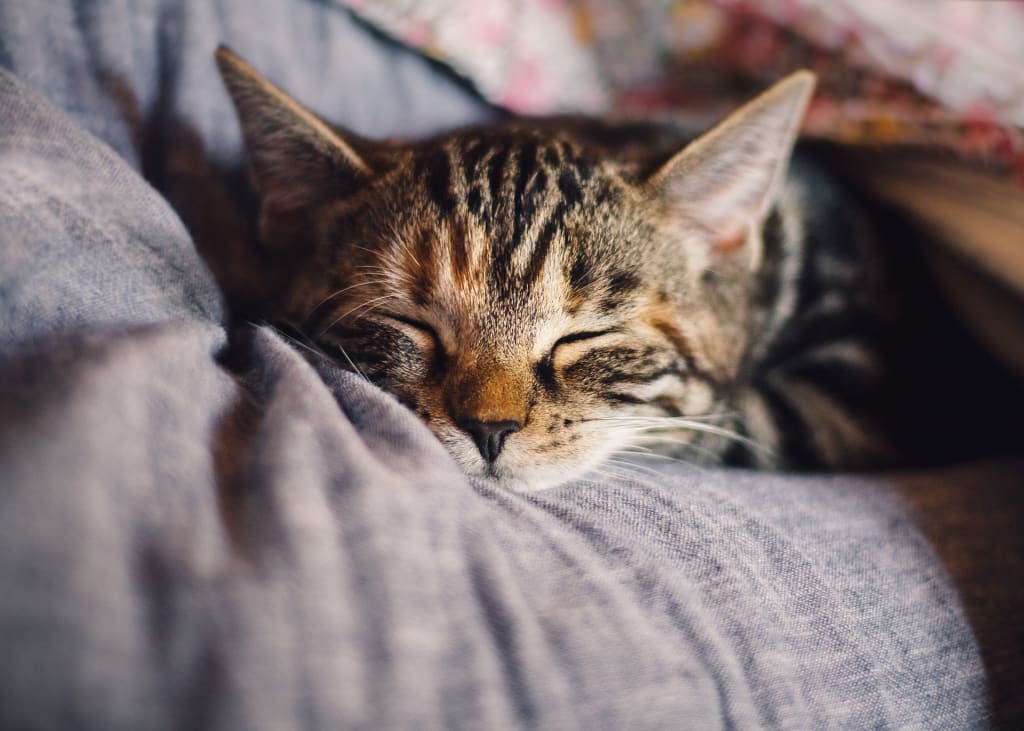The Sunsetting Lies of Morning People
Why Getting Up Early is So Very Irritating

During his time in the Oval Office, Barack Obama was a self-proclaimed “night guy” who tended to stay up well past midnight despite his early morning duties. His predecessor, George W. Bush, was usually in bed by 10 and often started his workday well before seven a.m., a habit most normal people find unbelievably annoying.
Research suggests Bush and other “morning larks” may have fewer health risks than their “night owl” counterparts, however, everyday experience suggests Bush was was way more irritating then Obama. Obama’s staff was able to sleep soundly until a reasonable and normal wake up time on the weekends. Meanwhile, Mr. morning sunshine Bush would awaken his staff, typically still hungover after hitting the bars in Georgetown until way too late on Friday, by whistling down the hall loudly every Saturday at 5am.
Last year, a study found people who considered themselves to be “evening types,” loosely defined as those who prefer to stay up and rise late, but more commonly described as cool people or normal people, were at greater risk than morning types for psychological disorders, diabetes, neurological disorders, gut disorders, and even death. More research in this vein also suggests that evening types are at greater risk for heart disease. No research was needed to confirm that evening types were way cooler than their dorky early morning riser counterparts who are universally irritating. The negative health consequences are simply not significant enough to overcome the negative social benefits associated with going to bed early, nor the irritation factor associated with people who wake up early.
“If people are always having to adhere to a schedule they’re not suited to, that may create health problems. However, if they are always going to bed and waking up early, that will create social problems including significant irritation of friends and family. The question is, would you rather live a few more weeks knowing that you are going to be irritating the hell out of everyone around you, or die just a fraction sooner content in the knowledge that your behaviors were more normal and socially acceptable?” Wulff says.
And a study published last week in The BMJ medical journal found that in women, being a “morning person” is associated with a lower risk for breast cancer. Interestingly they also had a much lower probability of breast touching as they had fewer options in terms of mate selection then their normally behaved counterparts who went to bed and woke up at a decent time. The U.K. study team analyzed genetic data, sleep questionnaires, and breast cancer incidence reports collected from hundreds of thousands of women. Using a variety of analytic techniques, they found “consistent evidence” that women who were early to rise and early to bed were less likely to develop breast cancer than women who stayed up and slept in late. The study did not report on the commonly accepted notion that for women being a “morning person” is associated with a much higher risk of being irritating.
The study authors acknowledged that their findings had limitations — first and foremost that the women in the study self-reported their sleep-wake habits and preferences, and therefore were subject to error. It is also well known that early risers are prone to deception and often confused. But their study’s findings aren’t the first to link morning preferences with a health benefit, nor the first to associate morning preferences with irritating people.
For a while now, researchers have understood that human beings are equipped with built-in “clock genes” that exist in every cell in the body, and that are active or inactive at regular intervals throughout the day. These clock genes, in conjunction with environmental cues such as daytime sun exposure, help set the body’s internal circadian rhythms or schedules, which regulate a person’s appetite, hormone levels, body temperature, energy, sleep schedule, and much more. “The reason for this is our planet is ruled by the solar system which generates a rhythmic environment, and over millions of years organisms have developed these clocks to cope with the environmental rhythms,” says Katharina Wulff, a chronobiologist and senior lecturer in molecular biology at Umeå University in Sweden.
But Wulff says the body’s internal clocks do not exactly overlap with the external, 24-hour clock set by our solar system. And this is by design. “This allows us the flexibility to adapt or adjust to different environments, such as seasonal shifts in daylight schedules.
"It does not yet provide an explanatory framework for the seemingly universal fact that early risers are irritating” she explains.
Most people have a great deal of overlap between their internal clocks and the external world’s 24-hour clock. They may run slightly ahead or behind, and so their preference for rising on the early side or staying up a bit later isn’t too dramatic. But in some — up to 10% of the population, Wulff estimates — there’s a sizeable discrepancy. This discrepancy creates an extreme preference for morningness or eveningness, she says. And the underlying genetic variations that account for this extreme preference for eveningness seem to be associated with a greater risk for health issues.
Conversely, a preference for morningness is associated with a greater risk of being irritating to others.
But why? One possibility is that the clock genes that are associated with night owl status also increase a person’s risk for various health issues, and their chances of having a normal social life and getting laid. At the same time morning people are known to disrupt the sleep wake cycle of normal people by getting up so damn early. The resultant irritation felt by the night owl’s creates a negative feedback loop further increasing the risk of a serious beating being delivered to the early risers.
For night owls, the takeaway from these studies isn’t that they need to get to bed earlier; instead, it’s that they would be better off if allowed to heed their body’s natural inclination to stay up and sleep a bit later, says Wulff. Of course the early risers will never let us just freakin sleep in for once. Stupid, irritating morning people.
About the Creator
Everyday Junglist
Practicing mage of the natural sciences (Ph.D. micro/mol bio), Thought middle manager, Everyday Junglist, Boulderer, Cat lover, No tie shoelace user, Humorist, Argan oil aficionado. Occasional LinkedIn & Facebook user






Comments
There are no comments for this story
Be the first to respond and start the conversation.